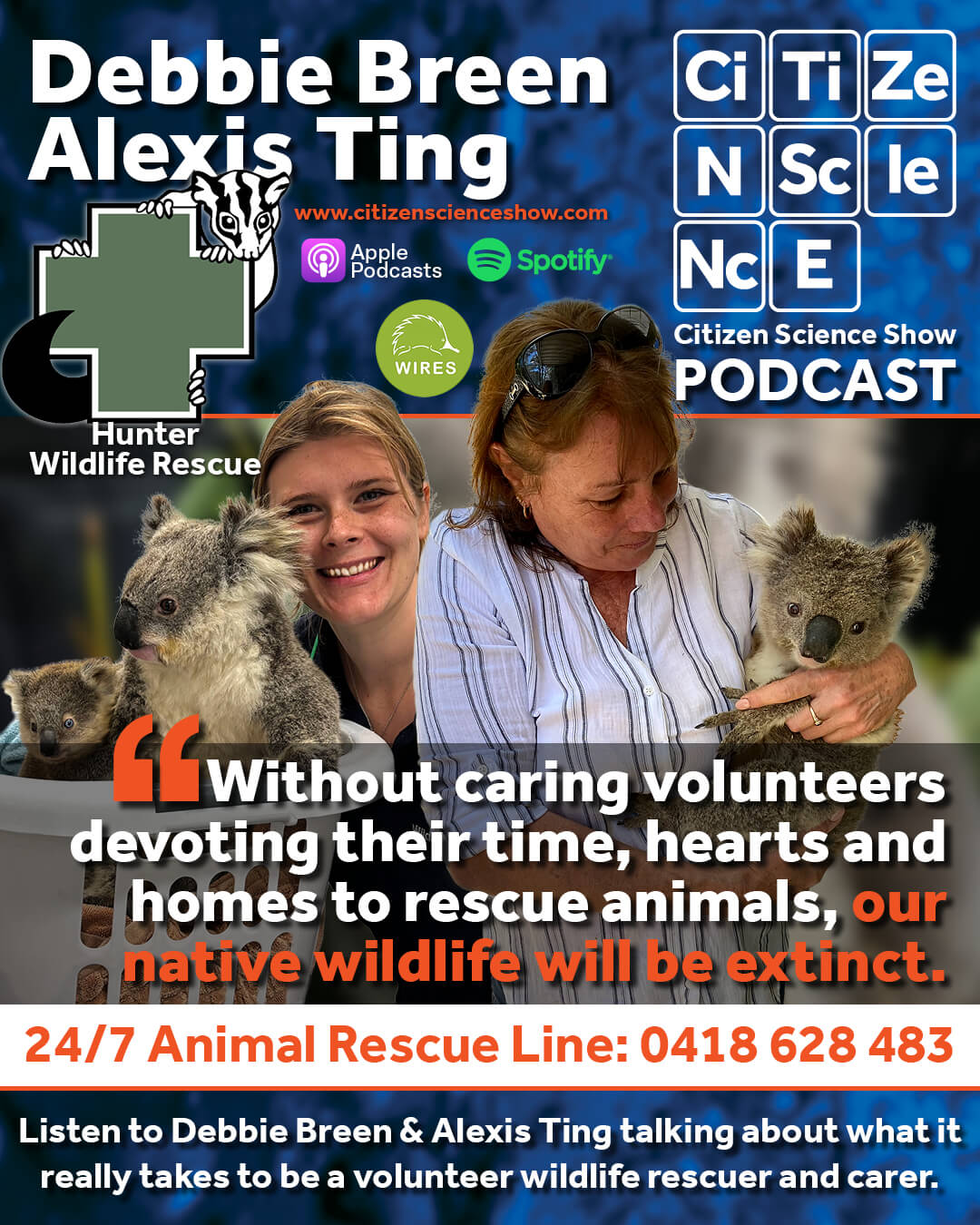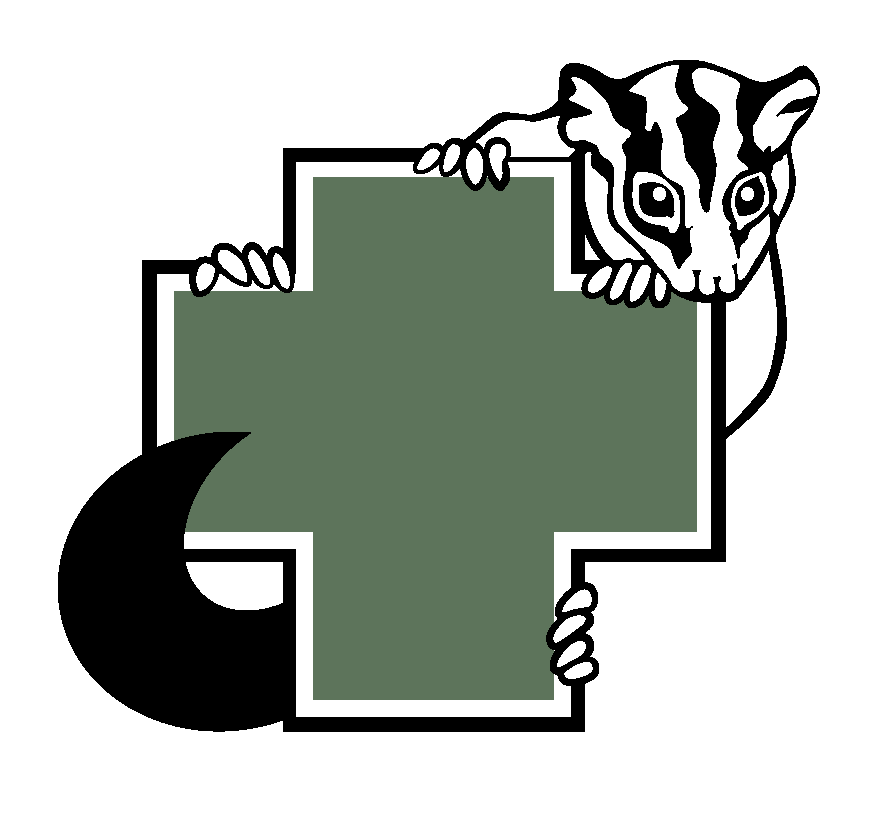Citizen Science: Koala Rescue In The Hunter
Citizen Science: Koala Rescue In The Hunter
8 October 2025

When Passion Meets Purpose, Citizen Science Becomes A Tool For Hope
In a recent episode of the Citizen Science Show, long-time wildlife rescuers and carers Debbie Breen (Senior Koala Coordinator) and Alexis Ting (Koala Rescue Coordinator) from Hunter Wildlife Rescue shared an inside look at the challenges and triumphs of saving native wildlife — especially our much-loved koalas — in the Hunter region of NSW.
⸻
🎧 Listen to the full episode:
Available on Spotify, Apple Podcasts, and major podcast platforms.
⸻
Decades Of Dedication
For more than 30 years, Debbie Breen has been on the frontline caring for koalas and wombats. As the Senior Koala Coordinator for Hunter Wildlife Rescue, she has seen firsthand how fragile our native species have become in the face of habitat loss, road collisions, and disease.
“We’re seeing more and more habitat cleared — often right through known koala corridors,” Debbie said. “When we lose trees, we lose the animals that depend on them.”
Alongside her, Alexis Ting represents a new generation of volunteer rescuers — passionate, data-driven, and community-minded. Alexis has been rescuing wildlife for over five years, and she’s helped map hotspots for koala injuries and road deaths to support council planning and mitigation efforts.
Turning Data Into Conservation
Beyond the hands-on rescues, Debbie and Alexis are helping to build a crucial database on koala populations and health across the Hunter. Their citizen-science work tracks:
🐨 Koala sightings and rescues
🐨 Chlamydia pecorum infection rates
🐨 Roadkill and collision hotspots
🐨 Habitat fragmentation and tree loss
This data is shared with local councils and conservation partners to guide more informed decision-making — from wildlife crossings and warning signs to habitat restoration projects.
“Every record helps paint a clearer picture of how koalas are surviving — or struggling — in our region,” Alexis explained.
Working With Councils To Save Lives
Through persistent collaboration with councils across Lake Macquarie, Cessnock, Maitland and Port Stephens, our volunteers are helping identify where roads cut through koala corridors — and advocating for practical solutions such as:
🐨 Wildlife signage and driver awareness campaigns
🐨 Habitat-friendly road design
🐨 Wildlife crossings and exclusion fencing
These measures can significantly reduce road fatalities and give wildlife safer passage through their natural range.
The Human Side Of Wildlife Rescue
Both Debbie and Alexis spoke candidly about the emotional toll of rescue work. Rescuers are often first on scene when an animal has been struck by a car or displaced by clearing. Yet amid the heartbreak, there are moments of incredible joy, like releasing a recovered koala back to its territory.
“When a healthy koala climbs back into the trees, that’s what keeps us going,” Debbie said.
Their message is simple but powerful: every person can make a difference. Reporting injured wildlife, planting native trees, and driving carefully through bushland all help protect these precious species.
How You Can Help
If you see injured, sick or orphaned wildlife in the Hunter region of NSW, please call the Hunter Wildlife Rescue Hotline on 📞 0418 628 483 — available 24/7.
You can also:
• Volunteer to join the rescue team
• Donate to support rescue and rehabilitation
• Share this story to raise awareness for koala conservation
Together, we can ensure the Hunter remains a safe home for koalas, wombats, and all our native wildlife.



